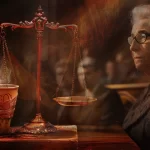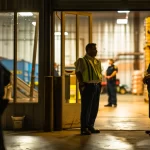At some point during your consultation with your attorney, or perhaps once your case has gone into litigation, he or she will likely discuss the possibility of hiring an “expert witness” to testify in support of your case. Expert witnesses are extremely common in almost all types of cases (i.e. civil, criminal, family, probate, injury) today and the scope of expertise is as diverse as the subject matter of the cases that are filed.
Some common areas where expert witnesses are engaged include:
• Accident Reconstruction Experts
• Medical Field Professionals
• Mental Health Experts
• Parenting & Child Care Experts
• Handwriting Experts
• Toxicology Research Analysts
• Forensic Microbiology Experts
• Blood Spatter Analysts
• Structural & Mechanical Engineering Experts
• Forensic Accounting Experts
• Securities & Banking Experts
• Computer Systems & Cybersecurity Experts
• Vocational Experts
• Shoe & Tire Tread Experts
Your attorney may wish to hire an expert in their field either to consult and advise him or her and his or her team in preparation of the case and/or to testify at trial. The decision to hire an expert or not will likely be determined by the cost and the necessity (i.e. if expert testimony is required).
An expert will be required to testify on subjects in which other witnesses (i.e. “lay” witnesses) are not qualified to testify. Generally, a witness is only permitted to testify about what they have seen, heard, observed, or otherwise perceived relating to the facts of the case. If the testimony involves formulating an opinion which requires special knowledge, skill, experience, or training—then, a lay witness will not be permitted to testify (South Carolina Rule of Evidence 701).
So how does someone become qualified to testify as an expert? The standard is not necessarily as stringent as you may think.
“To be competent to testify as an expert, a witness must have acquired by reason of study or experience or both such knowledge and skill in a profession or science that he is better qualified than the jury to form an opinion on the particular subject of his testimony.” (Risher v. South Carolina Dept. of Health and Environmental Control. 712 S.E. 2d 428,432, 2011).
Obviously, this is a broad criteria in which to classify someone as an expert, but if your case involves evidence which is outside the knowledge of a lay witness, then their testimony will be absolutely crucial. Like with lawyers—the experience, expertise, and overall quality of expert witnesses can vary dramatically so you will want to make sure that you thoroughly evaluate an expert’s qualifications before hiring one.
At The Floyd Law Firm PC, we are focused on legal services that are specifically tailored to each client’s needs no matter how complex or straightforward. With more than 100 years of combined experience, our firm can address your specific situation with empathy and professionalism. Our firm was one of the first in Surfside Beach, and we have been helping people there for over 48 years.



